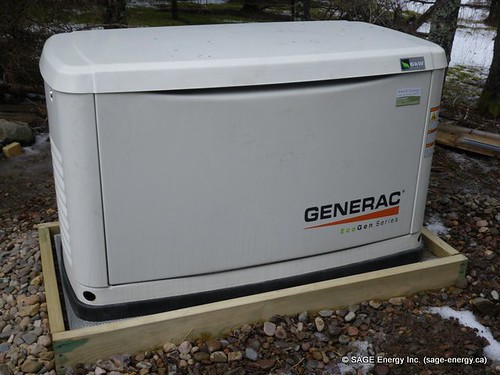Should You Get a Generac Extended Warranty? A Comprehensive Guide
When purchasing a Generac generator, one important decision is whether to invest in an extended warranty. While the standard warranty provides some protection, an extended warranty offers additional coverage for a longer period, ensuring your generator remains functional without unexpected repair costs.
However, an extended warranty comes with an added cost, and deciding whether it’s worth it depends on factors like frequency of use, repair costs, and available support services.
This guide explores everything you need to know about Generac extended warranties, including their benefits, drawbacks, and key considerations to help you make an informed decision.
1. Understanding the Standard Generac Warranty
Before deciding on an extended warranty, it’s important to know what the standard warranty includes. Generac generators typically come with a limited manufacturer’s warranty that covers:
- Defects in materials and workmanship for a specified period
- Essential repairs due to manufacturing faults
- Replacement of faulty parts (subject to terms and conditions)
The length of the standard warranty varies by model:
- Portable Generators: 1 to 2 years
- Home Standby Generators: 3 to 5 years
- Commercial & Industrial Generators: 2 to 5 years
However, the standard warranty does not cover:
- Regular wear and tear
- Damage from improper use, lack of maintenance, or external factors
- Labor and service fees after the warranty expires
Since the standard warranty has limitations, many generator owners consider purchasing an extended warranty for added protection.
2. What is a Generac Extended Warranty?
A Generac extended warranty is an optional protection plan that extends the standard coverage period. It typically lasts for 5, 7, or 10 years, depending on the generator model.
Benefits of an Extended Warranty
- Longer coverage beyond the manufacturer’s original warranty
- Cost savings on expensive repairs and part replacements
- Priority service with faster response times for repairs
- Peace of mind knowing unexpected breakdowns are covered
However, extended warranties vary in terms and conditions, so reviewing the details before purchasing is essential.
3. Factors to Consider When Deciding on an Extended Warranty
How Long You Need Coverage
If you plan to use your generator for many years, an extended warranty can provide security against major repairs. However, if you expect to upgrade or replace it within a few years, additional coverage may not be necessary.
Questions to ask:
- How long do I plan to own this generator?
- Will I upgrade before the standard warranty expires?
Cost of Repairs vs. Warranty Cost
Generator repairs can be expensive. Some estimated costs include:
- Battery replacement: $150 – $300
- Alternator repair: $500 – $1,500
- Fuel system repair: $300 – $800
- Engine repairs: $1,500 – $4,000
- Electrical issues: $500 – $2,000
If a major issue arises, repair costs can exceed the price of an extended warranty, which typically ranges from $500 to $1,500.
Questions to ask:
- Would I rather pay a one-time warranty fee or risk expensive repairs?
- How likely is my generator to need major repairs?
Frequency of Use
- Occasional use (backup power for emergencies) – An extended warranty may not be necessary.
- Frequent use (daily or weekly) – Higher wear and tear makes extended coverage a good option.
- Heavy-duty use (commercial or industrial) – Businesses and off-grid users should strongly consider an extended warranty.
Questions to ask:
- Will I use my generator daily, weekly, or only in emergencies?
- Is my generator at risk of high wear and tear?
Service and Support Options
Some extended warranty plans include:
- Priority service with faster response times
- In-home repairs by Generac-certified technicians
- Technical support for troubleshooting
- Replacement parts coverage (free or discounted)
If you value quick repairs and dedicated support, an extended warranty with service benefits might be worth the cost.
Questions to ask:
- Does this warranty include priority service and on-site repairs?
- What kind of customer support is included?
Environmental and Weather Factors
Generators in extreme climates may require more repairs:
- Extreme weather (heat, freezing temperatures, hurricanes) can increase breakdown risks.
- Outdoor exposure to rain, snow, and debris may lead to component failure.
- High humidity can cause corrosion and electrical issues.
Questions to ask:
- Is my generator exposed to harsh weather conditions?
- Will an extended warranty help protect against environmental damage?
4. Making the Final Decision: Is an Extended Warranty Worth It?
Recommended Situations for an Extended Warranty
✔ You rely on your generator frequently for home, business, or off-grid living.
✔ Your generator is installed in a harsh climate.
✔ You want priority repairs and dedicated customer support.
✔ You want to avoid costly repair bills after the standard warranty expires.
When an Extended Warranty May Not Be Necessary
✘ You rarely use your generator and only need it for occasional outages.
✘ You plan to upgrade before the standard warranty expires.
✘ The warranty cost is significantly higher than potential repairs.
Final Thoughts
Deciding whether to purchase a Generac extended warranty depends on your usage, risk tolerance, and budget. If you rely on your generator for critical power, extended coverage can provide long-term protection. However, if you use it occasionally, additional coverage may not be necessary.
By evaluating repair costs, expected lifespan, and service benefits, you can make the best decision for your situation.

